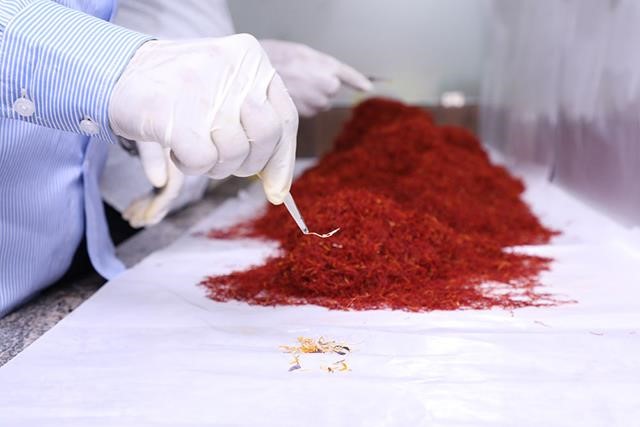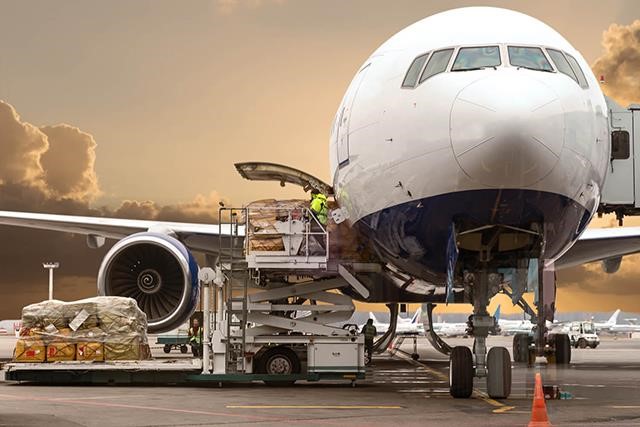Written by the public relations department of Sadaf Pack Company
One of the steps of saffron export is preparing the documents for saffron export, choosing the method of transportation, and observing the Incoterms (International Commercial Terms). In order to sell saffron internationally, the saffron exporter should properly prepare the product for export and be aware of international export laws and Iranian export laws. One of the most important issues in this regard is the transportation of export-grade saffron.
What information is important when transporting and sending export-grade saffron?
Here we only refer to the steps of sending the goods to the buyer. So we assume that you have found your customer, you have prepared your product correctly and according to the order, and now you want to send the goods. In general, a saffron exporter should be aware of the following when preparing the final product:
• Information about customs export laws
• Information about the import laws of the destination country
• Familiarity with sales Incoterms
• Familiarity with saffron transport companies and forwarders
• Information about the types of insurance, transportation, and financial risks
• Complete information about saffron insurance coverage and their types
The main steps of saffron export
Analysis of saffron
Many international saffron buyers request a saffron quality analysis report from the saffron exporter. The exporter of saffron is required to prepare these documents and should deliver them along with other documents to the carrier. This report is necessary for saffron exports.

Pro forma Invoice
In order to acquaint the buyer of the goods with the type of exported goods and its seller, the exporter is obliged to send a pro forma invoice containing this type of information to that person, company, or governmental organization. These pro forma invoices are in English and are available to exporters.
Invoice
Invoice is a document issued to the buyer. This document states the amount of the transaction and the number of goods or services being traded.
Packing List
In the process of transporting goods, another document called a packing list is provided with Invoice. This document is one of the mandatory items for the transportation of goods in international exchanges.
The packing list includes items such as type of export items, package dimensions, number of packages, and net and gross weight of the product.
Bill of Lading
The bill of lading, abbreviated as B/L, is one of the most important documents in the process of international freight transport.
The bill of lading has three main functions: First, it is a document that guarantees the contract of carriage of goods. Second, it is the receipt of the goods. Third, it is the evidence of ownership of the goods.
Packing and preparation of saffron cargo
At this step, the exporter prepares the agreed goods according to the previous agreement with the buyer and packages them according to the standards of the destination country to be ready for forwarding by land, sea, or air.

Customs price of saffron (Pricing / Costing)
All costs are stated at the exchange rate of the day and are paid with the traded currency unit.
First, the saffron exporter should pay the CIF (Cost, Insurance, and Freight) price. The CIF price is based on international Incoterms. Iranian Customs also requires the saffron exporter to pay the customs duty on saffron exports based on these costs for saffron exports. Costs include:
• The price of export-grade saffron in Iran
• Insurance costs of export-grade saffron cargo
• Packaging costs of export-grade saffron cargo
• Transporting costs of export-grade saffron cargo to the destination country
Other customs costs of export-grade saffron are as follows:
• Account opening costs
• The right to use map advantage
• Trademark
• Other costs
Receiving saffron export license (RCMC)
The exporter of goods should obtain the necessary permits from the relevant organizations such as the Ministry of Health and Medical Education, Ministry of Agriculture Jihad, Ministry of Industry, Mine and Trade, Iranian National Standards Organization, and other organizations and institutions involved in exports to be able to take the next steps.
Declaration of export-grade saffron cargo to the customs
To declare an export-grade saffron cargo, you should transport your goods to the relevant customs, which is probably an airport customs. Of course, you should have the documents that you have prepared so far to transport export-grade saffron.
Keep in mind that currently, due to the electronic procedures of customs for exporting saffron or any other product, many steps for declaring export saffron can be done in the Automated System for Customs Data.
Customs for saffron export
You should know that Iran has set rules for saffron exports. In order to declare saffron to the customs and perform customs procedures, saffron exporters should transport saffron for export from certain customs. A saffron exporter can transport saffron for export from the following customs:
• Mashhad Customs Department
• Mehrabad International Airport Customs, Tehran
Insurance of export-grade saffron
Usually, saffron export contracts are concluded with CIF Incoterms and the reason is the Iranian customs laws. In this type of export Incoterms, you should insure at least 110% of the value of the goods. Insuring export-grade saffron is the responsibility of the seller.
Contract with the transport company
Transportation of export-grade saffron usually has to be done by an international transport company. But due to the complexity of transportation contracts, this part of the job is usually the responsibility of a carrier or forwarder. The forwarder may provide you with services such as insurance or other matters. You can even leave the task of transporting export-grade saffron from the warehouse and placing it in the container to the forwarder.
Receiving inspection certificate
The inspection should be performed by an inspection company that is acceptable to the parties. These companies are usually international. In the end, the inspection company issues a certificate to transport the export-grade saffron, which should be sent to the buyer.
Obtaining a certificate of origin and issuing a sales invoice
At this stage, the saffron sales invoice is issued and approved by the office of the local chamber of commerce.
The chamber of commerce, after viewing the sales invoice of origin, issues the bill of lading and customs license of saffron.
Export of goods
In the final step, the transport company receives the customs clearance permit from the saffron exporter and transports it to the destination country after loading.
Methods of transporting export-grade saffron
Maritime Transportation
When transporting packages of export-grade saffron in the ship, we should pay attention to the high humidity of the ship.
Transportation of saffron in the ship may be in bulk or in containers. Sea transportation may be done by launch or cargo ships. Either way, you should know that moisture and shock are the first and most important hazards to your export-grade saffron shipment.
Air transportation, the best way to export saffron
Remember that saffron air transportation is the most widely used method of exporting saffron. The reason is the low volume of the cargo and speed of sending. But each cargo should be able to withstand sudden changes in air pressure and shocks.
In saffron air transport, strong shocks should be considered. Also note that during flight, the air pressure inside the cargo cabin of the aircraft undergoes special changes, and this may change the air penetration into the package of export-grade saffron.

Land transportation
This method is the least used method of carrying saffron packages. In the methods of land transportation of export-grade saffron, which is mainly done in containers and trucks, attention should be paid to the movement and possible damages to the goods. The important issue in container transportation is the long process of transporting saffron packages and the high possibility of damage to the package.
Conclusion
Saffron exporters can make the best decision for transporting export-grade saffron by being aware of the above-mentioned subjects. Choosing the right method for transporting and exporting this product is not only an important factor in the export standards of goods but also will help maintain the quality of the product in the export process.
Contact us now on whatsapp +971-503058098
You may like to read these article:
How can we distinguish original saffron from fake saffron?
The role of saffron packaging in export
This post is also available in: العربية (Arabic)



One Response